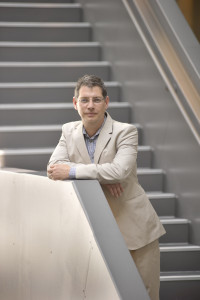David Zweig, University of Toronto Scarborough – Knowledge Hiding
The hiding of information and knowledge can prove disastrous.
David Zweig, an associate professor of organizational behavior at The University of Toronto Scarborough, is studying the effects of knowledge hiding.
David Zweig is an Associate Professor of Organizational Behavior and the Chair of the Department of Management at the University of Toronto Scarborough. In addition, he is cross-appointed to the Rotman School of Management at the University of Toronto. His research focuses on topics such as workplace privacy, organizational cynicism, psychological contract breach, and knowledge hiding in organizations. He teaches undergraduate and graduate courses in Organizational Behavior and Recruitment and Selection.
Knowledge Hiding
![]()
Organizations spend a tremendous amount of time, effort, and resources on promoting knowledge sharing amongst their employees. However, these efforts often fail. My colleagues and I sought to uncover some reasons why knowledge sharing efforts are unsuccessful and we found that people will often engage in knowledge hiding –an active attempt to conceal knowledge requested by others.
Through the use of qualitative interviews and large-scale questionnaires with working employees in organizations around the world, we found that people often engage in three different types of knowledge hiding. Rationalized hiding, in which people indicate that they are not permitted to share requested knowledge; evasive hiding, in which people provide only partial knowledge or put off knowledge requests with no intention to fulfill them; or simply, playing dumb, in which people indicate that they do not have the requested knowledge.
We also know that knowledge hiding can create a vicious cycle where knowledge will be actively hidden, relationships will be damaged, and organizational effectiveness will be undermined. In our latest research, we sought to ‘get into the heads’ of knowledge hiding perpetrators and targets and found that that even though perpetrators of different types of knowledge hiding can anticipate that their own knowledge hiding will damage relationships and might result in retaliation from targets who have had knowledge hidden from them, they still engage in these different types of knowledge hiding.
As expected, targets generally reciprocate knowledge hiding toward them with intentions to hide knowledge themselves – especially when faced with evasive hiding which is the most deceptive type of knowledge hiding. However, rationalized hiding from perpetrators often led to better relationships and increased knowledge sharing because targets responded positively to the explanations provided.
The damaging effects of knowledge hiding can be mitigated by identifying that it is occurring, building greater trust, and in developing a climate that promotes sharing by rewarding the transfer of knowledge among colleagues.



